President Duterte Visits PNRI at Mindanao NSTW 2018 - Davao
- Details
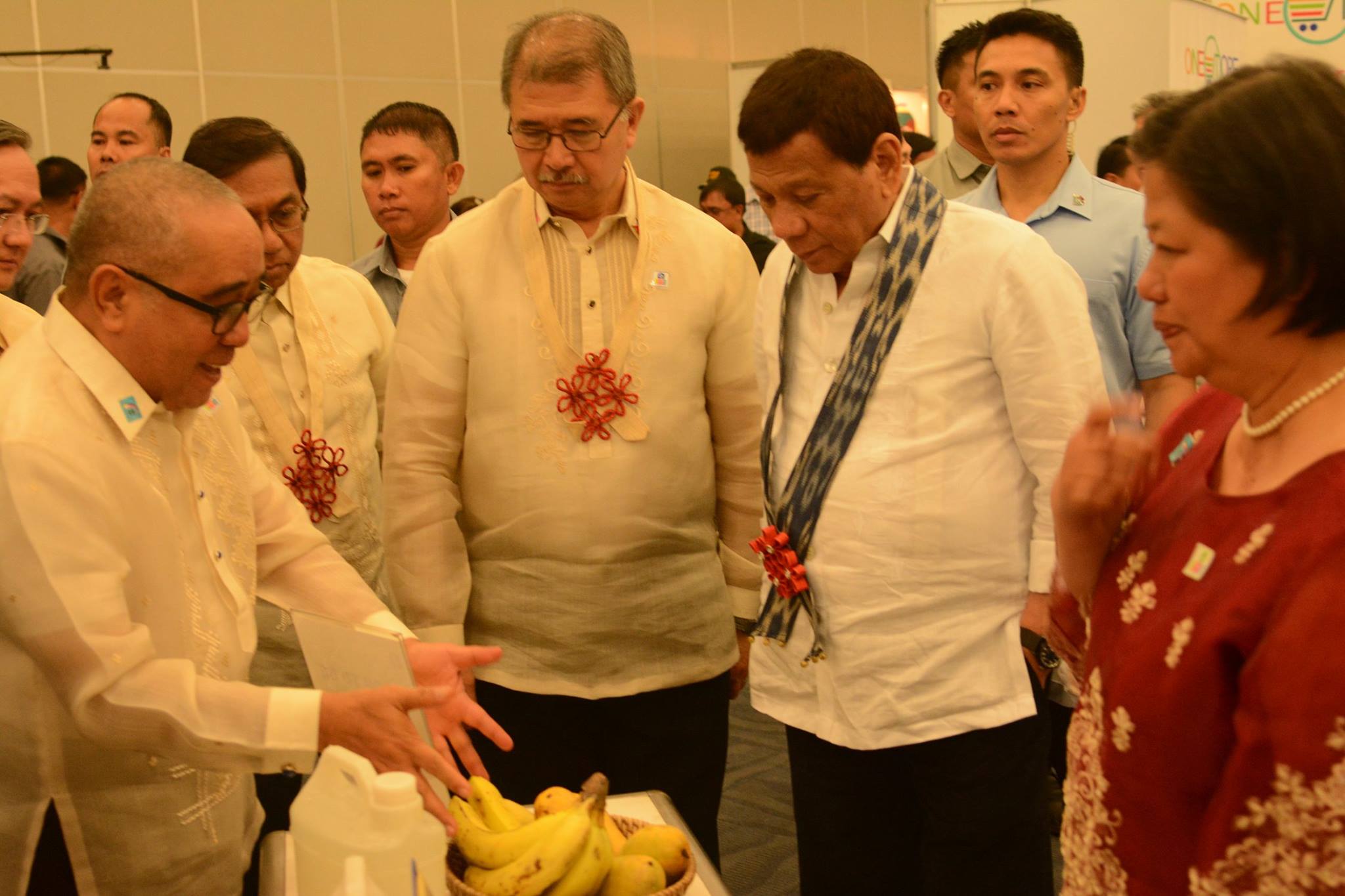
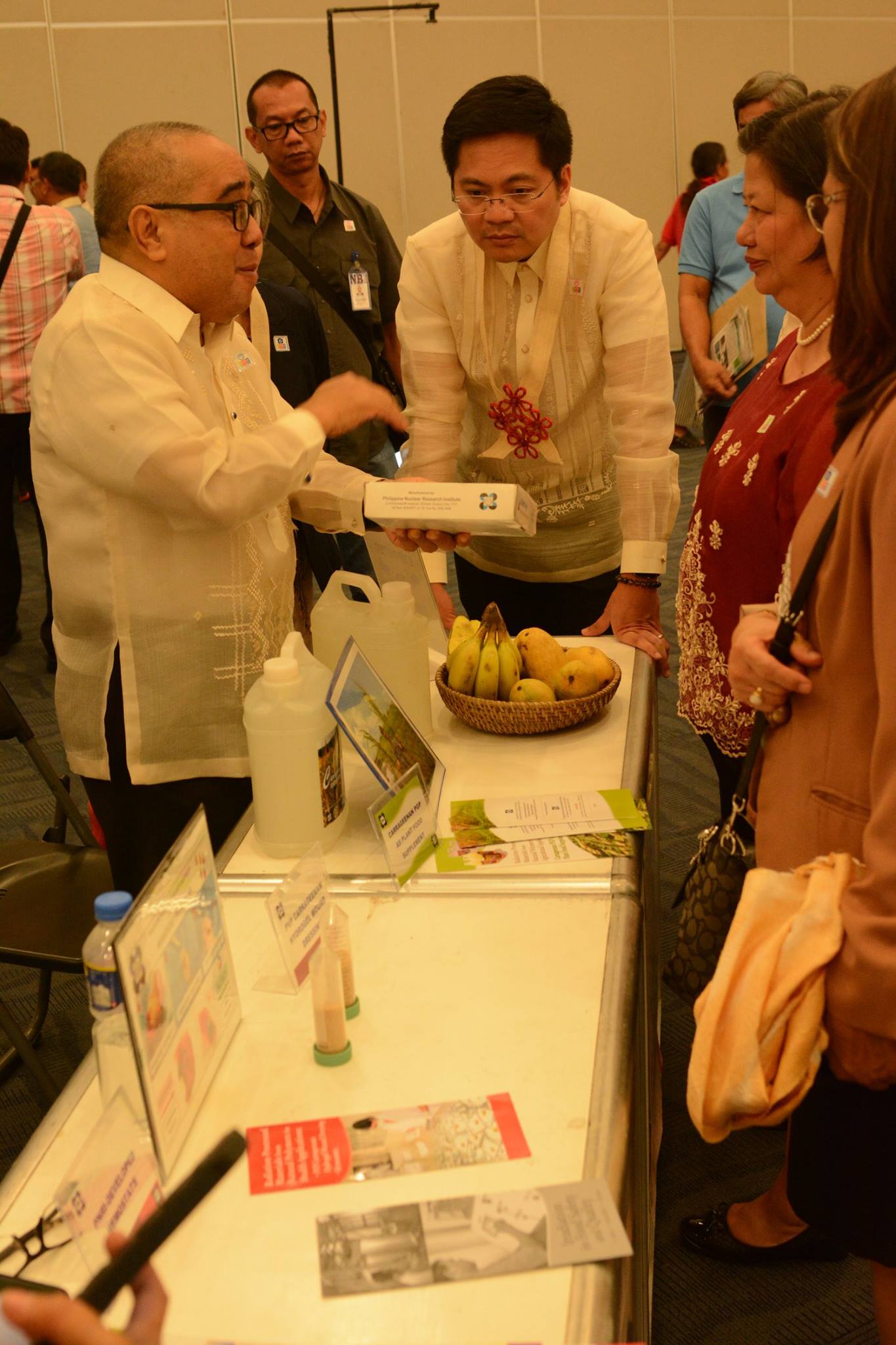
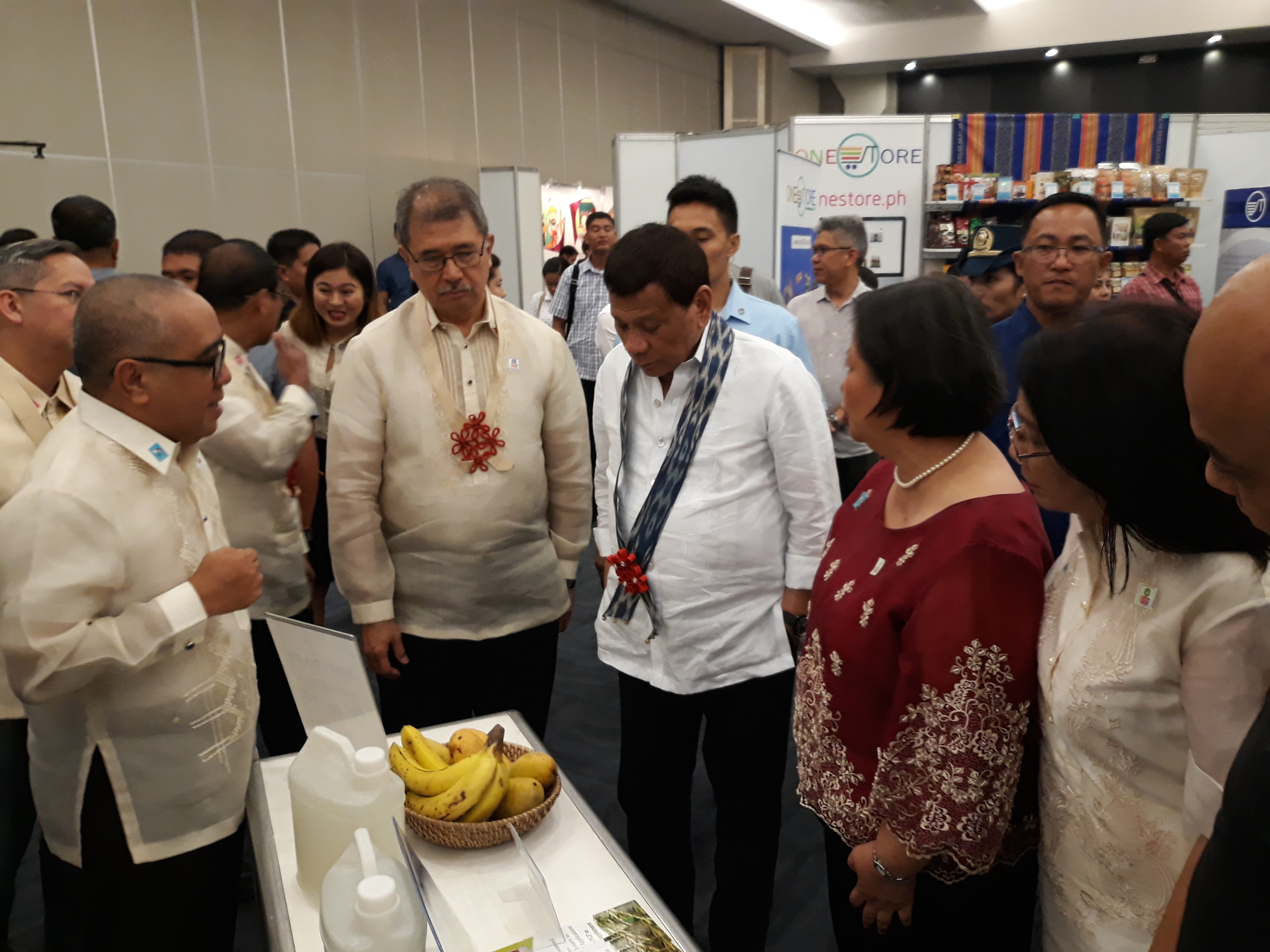
President Duterte Visits PNRI at Mindanao NSTW 2018 - Davao
During the 2018 Mindanao National Science and Technology Week on July 6, 2018, President Rodrigo Duterte, Representative Karlo Nograles of 1st District, Davao City and Secretary Fortunato de la Peña visited the PNRI booth on the latest applications of nuclear science and technology, as explained by PNRI Director Dr. Carlo Arcilla.
Dr. Arcilla was joined by Atomic Research Division Chief and Career Scientist Dr. Lucille Abad, and Technology Diffusion Division Chief Ms. Ana Elena Conjares.
Among the nuclear science and technology applications featured are the Carrageenan PGP as Plant Food Supplement, PVP Hydrogel Wound Dressings for wounds and bedsores, food irradiation for longer shelf-life and hemostats for wounds and skin openings.
PNRI Researcher Wins 2018 NAST Talent Search for Young Scientists
- Details
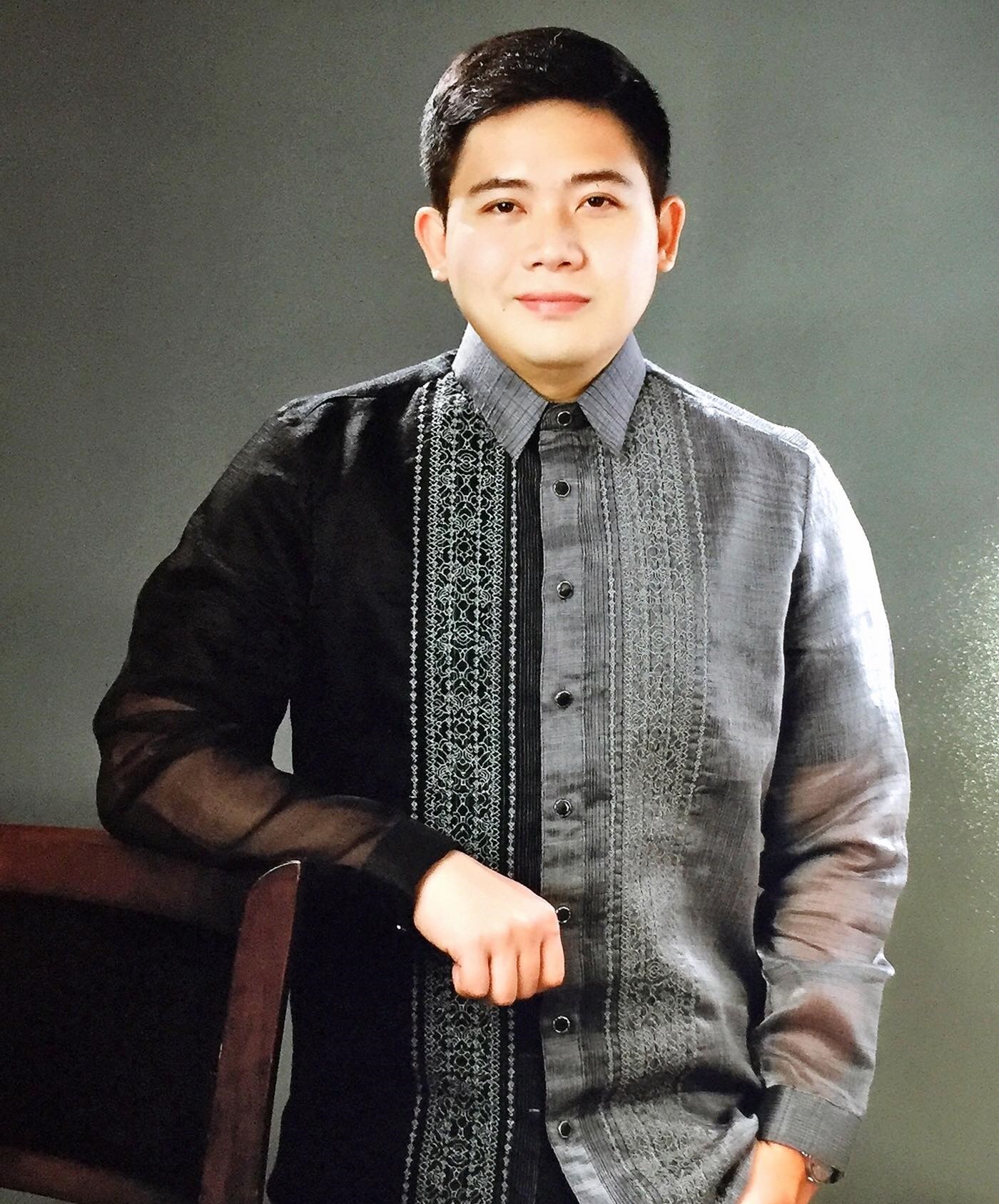

Dr. Chitho Feliciano (middle) receives the First Prize Award for the 2018 National Academy of Science and Technology (NAST) Talent Search for Young Scientists, awarded on July 12, 2018 at the Manila Hotel during the NAST 40th Annual Scientific Meeting. He is joined by Department of Science and Technology (DOST) Secretary Fortunato De La Peña (right) and NAST President, Acd. Rhodora Azanza (left).
PNRI Researcher Wins 2018 NAST Talent Search for Young Scientists
For his contribution to the field of radiation biology and nanomedicine research, Dr. Chitho Feliciano of the Department of Science and Technology – Philippine Nuclear Research Institute (DOST – PNRI) recently won the First Prize for the 2018 National Academy of Science and Technology (NAST) Talent Search for Young Scientists.
Dr. Feliciano received the award along with several other outstanding scientists and researchers who won in various categories during the closing of the NAST 40th Annual Scientific Meeting held at the Manila Hotel on July 12, 2018. The award includes a plaque of recognition, cash prize, and research grant from the DOST.
Dr. Feliciano joined the PNRI in 2004 under the Atomic Research Division of the Institute. In 2013, He was awarded with a Japanese Government Ph.D. Scholarship (Monbukagakusho) and finished his doctorate degree in Materials Science with special focus in Radiation Research at the University of Tsukuba, Japan in 2017.
His research projects in radiation biology and nanomedicines aim to improve protection measures against accidental exposure of radiation workers, patients and the general public to ionizing radiation. Many of these projects also won numerous awards in local and international scientific meetings and conferences since 2008. A prolific writer with eleven scientific articles in internationally-indexed peer-reviewed journals, he also served as the editor-in-chief of the Philippine Nuclear Journal, and serves as a reviewer of several international Scopus indexed journals.
Dr. Feliciano currently serves as the Section Head of the PNRI Health Physics Research Section – one of the youngest in the history of the Institute. The section conducts research projects involving radiation biology research and environmental radioactivity monitoring. He is also a regular member of the National Research Council of the Philippines (NRCP), One Expert Philippines and the International Radiation Research Society (RRS).
PNRI to Help Bring Back Nuke Engineering Course in the Academe
- Details
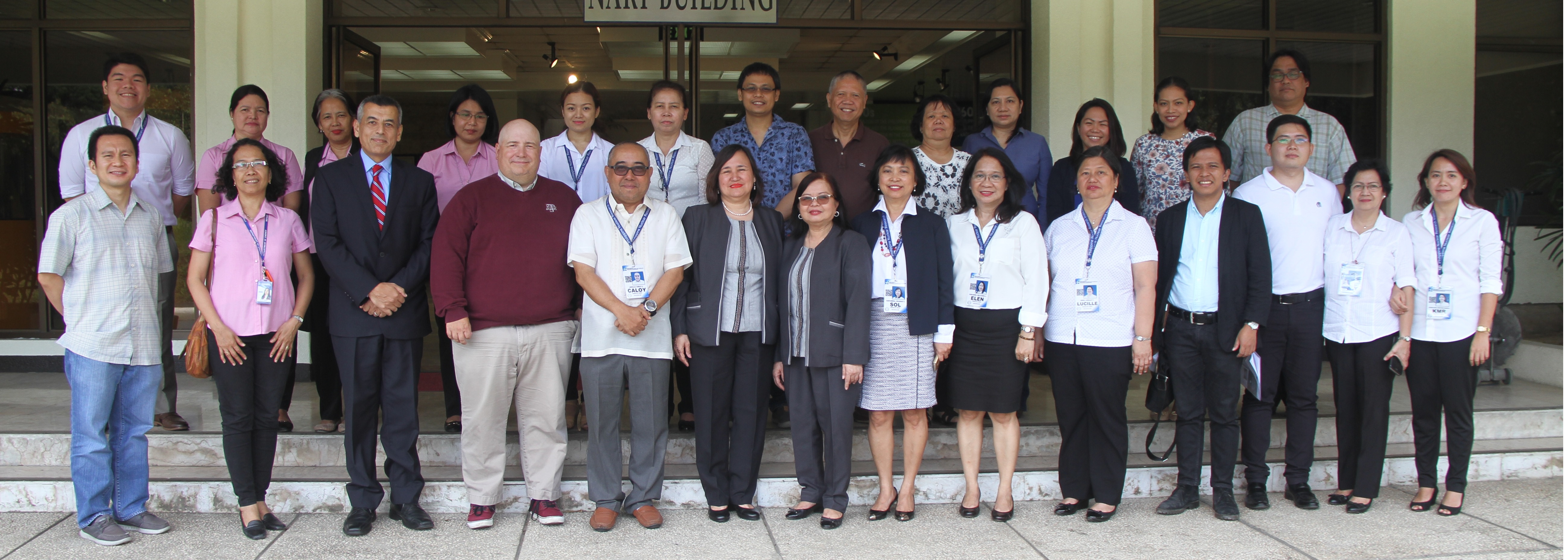
During the Consultation Meeting on Development of Nuclear Engineering Education Programs in the Philippines representatives from various universities and colleges in the Philippines are joined by PNRI Director Dr. Carlo Arcilla (1st row, 5th from left), DOE Energy Policy and Planning Bureau Director Ms. Carmencita Bariso (1st row, 7th from left), DOE Administrative Services Director Ms. Angelina Manga (1st row, 6th from left). Also in photo are IAEA experts Mr. Walid Metwally of the University of Sharjah, United Arab Emirates and Mr. Cable Kurwitz of Texas A&M University, United States of America (1st row, 3rd and 4th from left, respectively), as well as officials and researchers from PNRI and DOE.
PNRI to Help Bring Back Nuke Engineering Course in the Academe
As the Philippines prepares for a national decision on whether or not to engage in a nuclear power program, several of the country’s leading universities and colleges were consulted for the re-establishment of a nuclear engineering course and other related academic programs with assistance from the Department of Science and Technology – Philippine Nuclear Research Institute (DOST-PNRI) and the Department of Energy (DOE).
During the consultation meeting at PNRI from June 18 to 21, officials from PNRI and DOE as well as experts from the International Atomic Energy Agency (IAEA) met with members of the academe in the fields of science and engineering to discuss the Philippines’ current education situation and to meet the expected human resources demands of a future nuclear power program.
Representatives present are department heads and professors from the University of the Philippines – Diliman, Ateneo de Manila University, De La Salle University, University of Santo Tomas, Mapua University, Central Luzon State University, University of the Philippines – Los Baños, University of San Carlos and Mindanao State University – Iligan Institute of Technology.
Human resources development is one of the Philippines’ current challenges for nuclear power. The meeting aims to revive the nuclear engineering program at the tertiary level, as the last batch of nuclear engineers graduated in 1984 from the University of the Philippines. The program ceased along with the shifting priorities of the government away from nuclear power and the mothballing of the Bataan Nuclear Power Plant in 1986.
Aside from addressing the lack of nuclear engineers, the IAEA emphasized the role of two-year academic programs in producing technicians and other support staff, who actually make up the bulk of the personnel necessary in building and operating nuclear power plants.
IAEA experts also proposed the “nuclearization” of several engineering, science and technical courses, especially the inclusion of basic nuclear science and radiation protection, which will allow the personnel to carry out their conventional fields of expertise in a nuclear or radiation-related setting.
Beyond nuclear power, PNRI hopes that the recent interest of the academic sector in nuclear science will also extend to other nuclear and radiation applications, especially given the expertise of certain universities and colleges in various fields of study such as in agriculture and medicine.
In the meantime, PNRI is also strengthening its own plethora of nuclear training courses. The Nuclear Training Center conducts more than 20 training courses annually for hundreds of professionals as well as undergraduates, covering topics such as nuclear technology, radiation safety and protection and non-destructive testing, to name a few.
The IAEA experts and meeting participants also visited some of the PNRI facilities. Among these are the neutron sources research facilities such as the Philippine Research Reactor – 1, which now houses the development of the Subcritical Assembly for Training, Education and Research (SATER), the recently established PNRI Neutron Laboratory, the Technetium-99m Generator Facility for medical procedures, and radiation processing facilities such as the Cobalt-60 Multipurpose Irradiation Facility and the Electron Beam Irradiation Facility.
PNRI Revives Technetium-99m Production
- Details
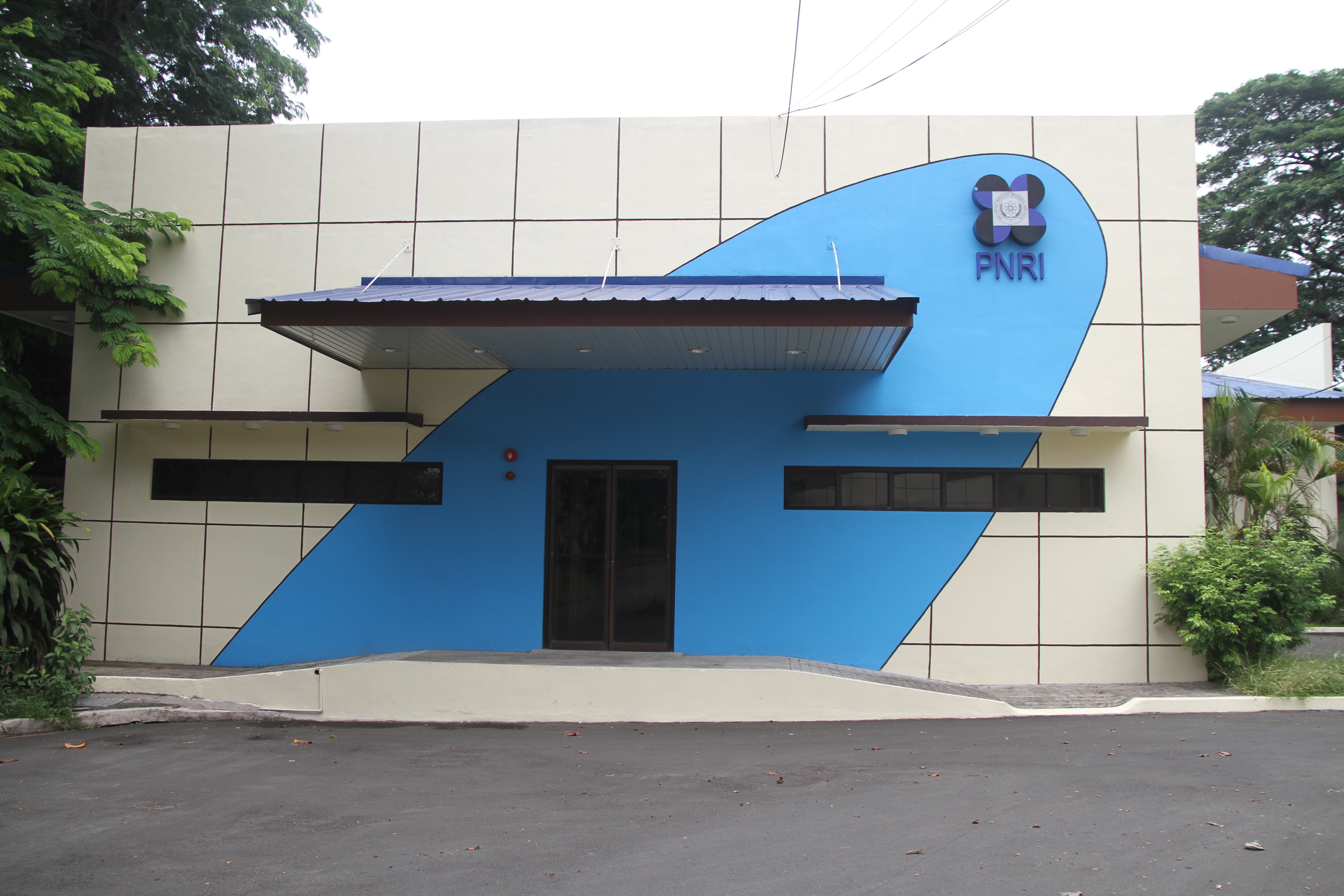

The PNRI Technetium-99m (Tc-99m) Generator Facility (above) where the Institute produces the Tc-99m generator (below)
PNRI Revives Technetium-99m Production
Bringing the Philippines back on track in improving its nuclear medicine applications, the Department of Science and Technology – Philippine Nuclear Research Institute (DOST-PNRI) has restarted its production of Technetium-99m (Tc-99m) with resources from other countries.
With PNRI’s Tc-99m Generator Facility, the average cost for importing the workhorse radiopharmaceutical can be lowered by around 20 percent.
A medical radioisotope generated from Molybdenum-99m (Mo-99), Tc-99m allows doctors to scan and provide an image of various organs in the body, used in more than 80 percent of the world’s nuclear diagnostic imaging procedures.
With a short half-life of 6 hours, Tc-99m emits gamma rays which makes it very useful as a tracer in helping to diagnose various physical ailments and abnormalities at the early stages while minimizing the exposure of patients to radiation.
After negotiations with the Rosatom State Nuclear Energy Corporation (ROSATOM) in Russia, PNRI Director Dr. Carlo Arcilla was able to secure a fresh shipment of Mo-99 from Moscow for the Institute’s operation of the generator facility, with the initial Tc-99m eluates to be used for unit dose training.
With the expected arrival of another batch of Mo-99m from Indonesia, PNRI plans to begin commercializing the Tc-99m radiopharmaceutical in the near future. The generator facility hopes to serve the needs of more than 40 nuclear medicine centers across the country.
PNRI has obtained a license to operate the Tc-99m facility from the Food and Drug Administration (FDA) in 2014.












































